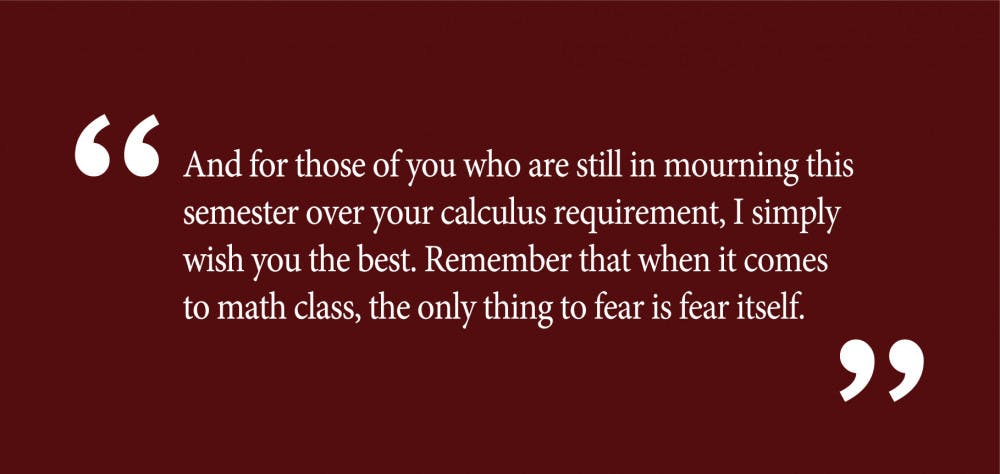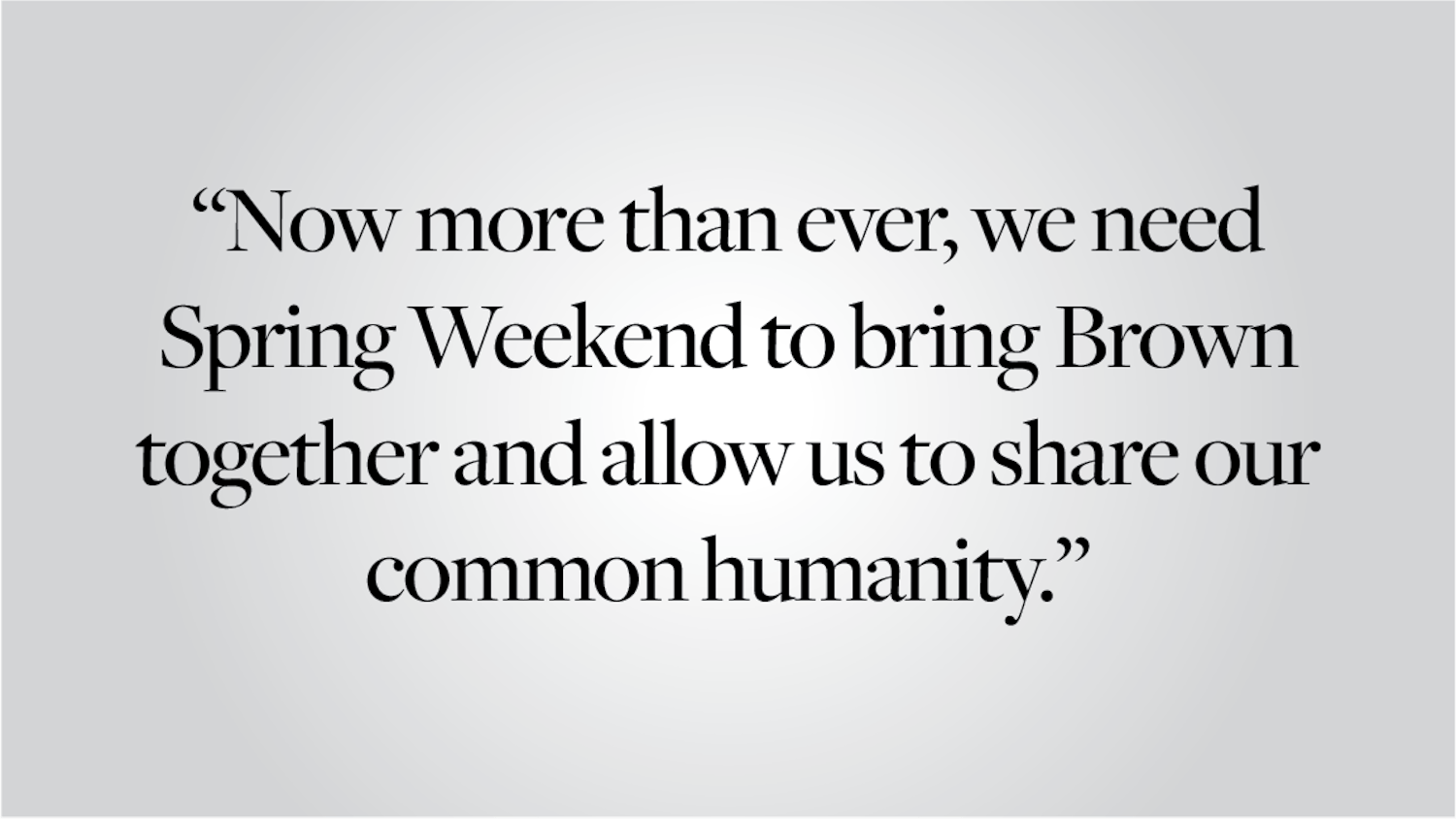I was chatting with a friend the other day when I accidentally unearthed a source of deep psychological trauma — I asked her how math class was going. All the joy left her face in an instant, replaced with a curious mix of fear, panic and anger.
Though this story is anecdotal, it reflects a rather common sentiment I have observed at Brown. While I have met my fair share of the numerically inclined, a surprising proportion of students seems to truly despise math. For these people, the appeal of the Open Curriculum is apparently not just the opportunity to explore various academic domains. It is also the opportunity to avoid taking a math class ever again.
While everyone is entitled to their own intellectual preferences, at times animosity toward math is so acute that I cannot help but wonder if people are thinking about the subject in the wrong way. Restructuring our outlook toward math classes might make them more tolerable — maybe even enjoyable.
Of course, mathemaphobia is not exclusive to Brown, and I do not seek to trivialize the significance of the issue. Math anxiety is pervasive: In fact, it is so pervasive that there is an entire body of research dedicated to its study — and its effects are certainly nontrivial.
For example, one study from the University of Chicago showed how a fear of math can trigger parts of our brain associated with physical pain. And other studies have shown how the cycle of math evasion can be self-perpetuating: the very act of stressing about math can cause us to perform more poorly when solving problems. People who worry about math are by no means less competent. But the negative consequences of math anxiety can give people the illusion of their own inadequacy and cause them to fret about numbers even more. The psychological repercussions of math anxiety ultimately alienate students from the subject; rarely do people develop a passion for subjects that cause them extreme emotional distress.
A number of broader, systemic issues further contribute to this crisis which currently deters countless Brown students from shopping math classes. Many have criticized the American approach to math education as riddled with rote memorization and needless abstraction. New curricular programs, such as the Common Core, seek to remedy these shortcomings, though the extent of their success remains uncertain.
The problems aren’t limited to curricula. Since math can be difficult, good math teachers are especially important — but as some education researchers have noted, there is also a lack of qualified math educators in our country. This phenomenon is not necessarily surprising. After all, the current generation of teachers may suffer from math anxiety as well. Many of us have been taught by teachers who enjoy math no more than we do.
I bring these factors up to prove a simple point. We may not actually hate math itself; we may only hate the way it has been taught.
Moreover, mathemaphobia can be self-fulfilling. Those who have been primed to dislike math are stuck in a loop of numerical loathing.
But it is worth trying to break this cycle and escape this mindset. At the end of the day, understanding math is fundamental, and I encourage all of us to give math another try while at Brown.
Math is ubiquitous. Its applications in fields like physics, computer science and engineering are obvious. But in truth, we find numerical thinking in countless other fields as well, including those we may not initially think of as math-related. The budding sociologist needs math in order to make sense of shifting demographic data. Future political pundits will need to understand statistics in order to interpret election forecasting models. I could go on. Indeed, the interdisciplinary value of math is immense.
Yet math also does not have to be immediately practical in order to be worthwhile.
I will admit that in our day-to-day lives, we rarely feel the need to find a derivative or solve a quadratic equation. At most, we might perform some quick mental math when calculating a tip. But beyond the practical value of math, there can also be a kind of beauty in numbers, hidden within obscure equations with ghastly Greek letters. Oftentimes, people approach math strictly as a necessary evil, as an unfortunate degree requirement. Many value math strictly for its concrete applications. In the process, they fail to go beyond the surface and forget to see the bigger picture: the profound, almost philosophical ideas at work within the numbers. Studying math with the sole purpose of finding overt usefulness is like reading Frankenstein as a pragmatic how-to guide for resurrecting dead bodies: you’re bound to be disappointed.
What does it really mean to approach a limit? How can math, a field so seemingly deterministic, be rife with uncertainty and paradox? Why are there different kinds of infinity? These are the kinds of questions that can make math more meaningful for the disillusioned.
So do I believe in a math requirement at Brown? No — though I will say that if we ever add another general education requirement, a math class would be my top candidate. I don’t believe in a math requirement because I think it would violate the ethos of the Open Curriculum: the somewhat cliche but profound ideal of being “the architects of our own education.” In the end, it is up to us to recognize the intrinsic value and joy found in a subject. I only hope that more of us will consider math as a possible avenue for intellectual adventure.
And for those of you who are still in mourning this semester over your calculus requirement, I simply wish you the best. Remember that when it comes to math class, the only thing to fear is fear itself.
Johnny Ren ’23 can be reached at jiawei_ren@brown.edu. Please send responses to this opinion to letters@browndailyherald.com and op-eds to opinions@browndailyherald.com.





